Panasonic RX-1950 Drive Belt and Motor
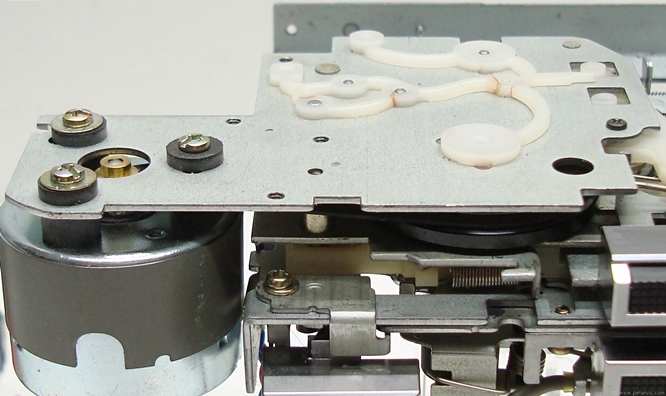
The tape transport mechanism requires only one drive belt. The replacement belt is approximately 130 mm in circumference, and approximately 1.2 mm in thickness, with a square-cut cross-section.
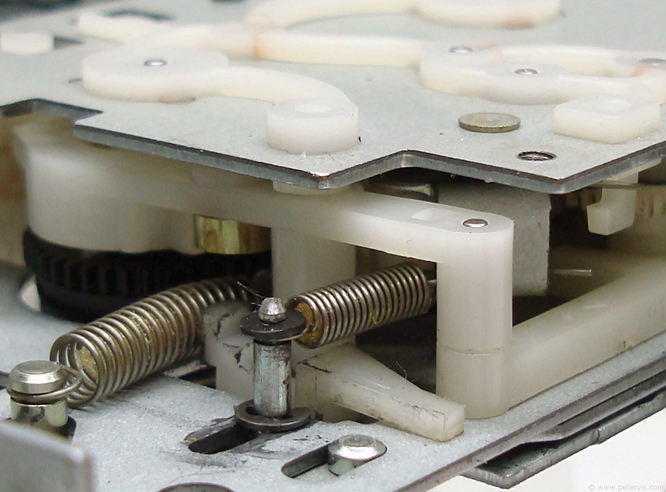
Changing the drive belt for this unit is extremely complicated and it is not a job for the faint-hearted. The capstan flywheel, and motor pulley, is covered over by a metal plate. To remove the metal plate, the motor has to be removed first. In addition, between the covering metal plate and the chassis, there are also plastic linkages and springs, which will all pop out as you remove the plate. For many, it takes the rest of their natural lifetimes to figure out how it all goes back in! Hopefully the pictures here might help you figure out where the springs and plastic linkages connect.
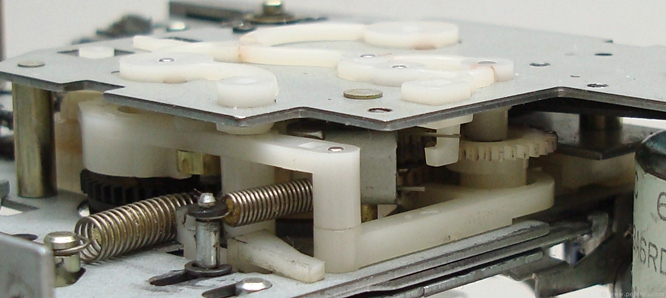
To remove the metal covering plate, I had to remove the battery compartment frame, which is the internal plastic frame with the battery clips. I also had to remove the motor regulator board, which is a small square board. The metal plate is also secured by screws on both sides; however they are obvious and not hidden.
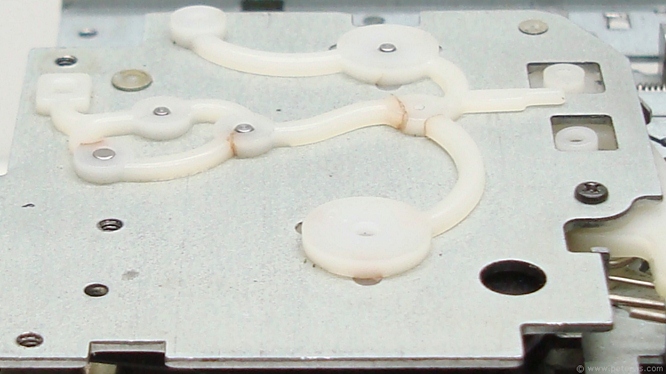
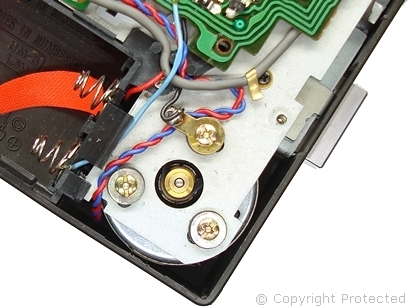
The Panasonic RX-1950 has a brush type motor which still continues to operate fine after all these years. Brush motors usually provide a good service, and are fine; however, it all depends upon who makes them. The Japanese designed and constructed motors are usually superior in my experience.
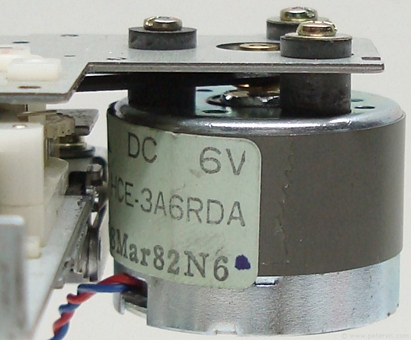
DC Motor
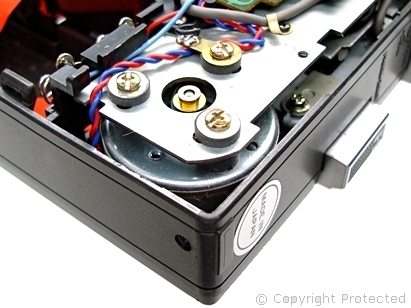
As you can see, the construction of the motor mount is high standard. The rubber grommets provide shock absorption from small knocks. If you have one of these players then I would recommend that you use it with care, as replacement parts will be unavailable.
This Article Continues...

Panasonic RX-1950 Stereo Cassette Recorder
Panasonic RX-1950 Inside
Panasonic RX-1950 Drive Belt and Motor
Panasonic RX-1950 Cassette Compartment
Panasonic RX-1950 PCB
AN7220 Radio Chip & Circuit
Panasonic RX-1950 FM / AM Radio
Panasonic RX-1950 Metal Chassis
Panasonic RX-1950 Battery Compartment